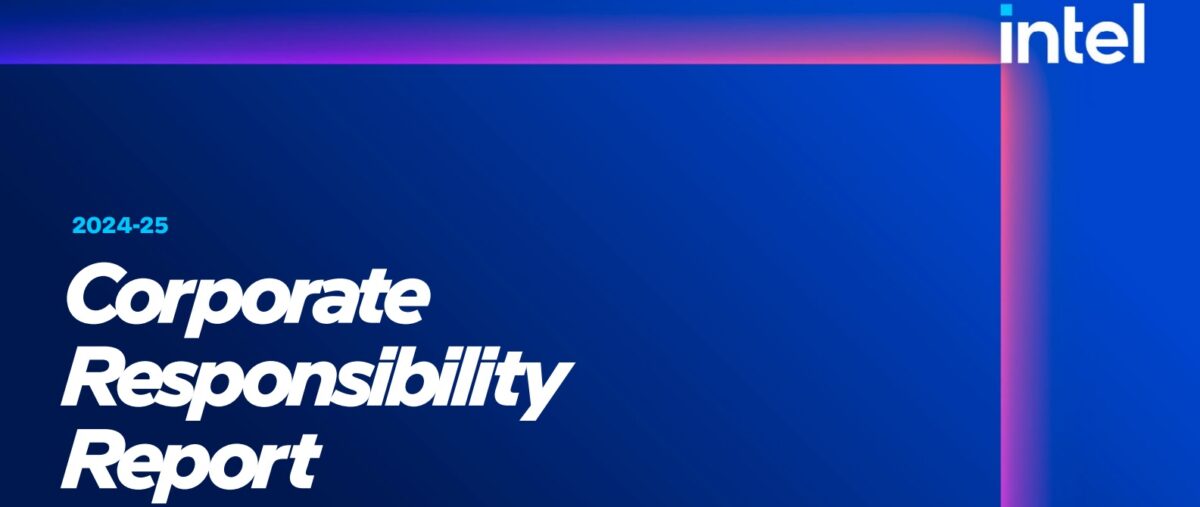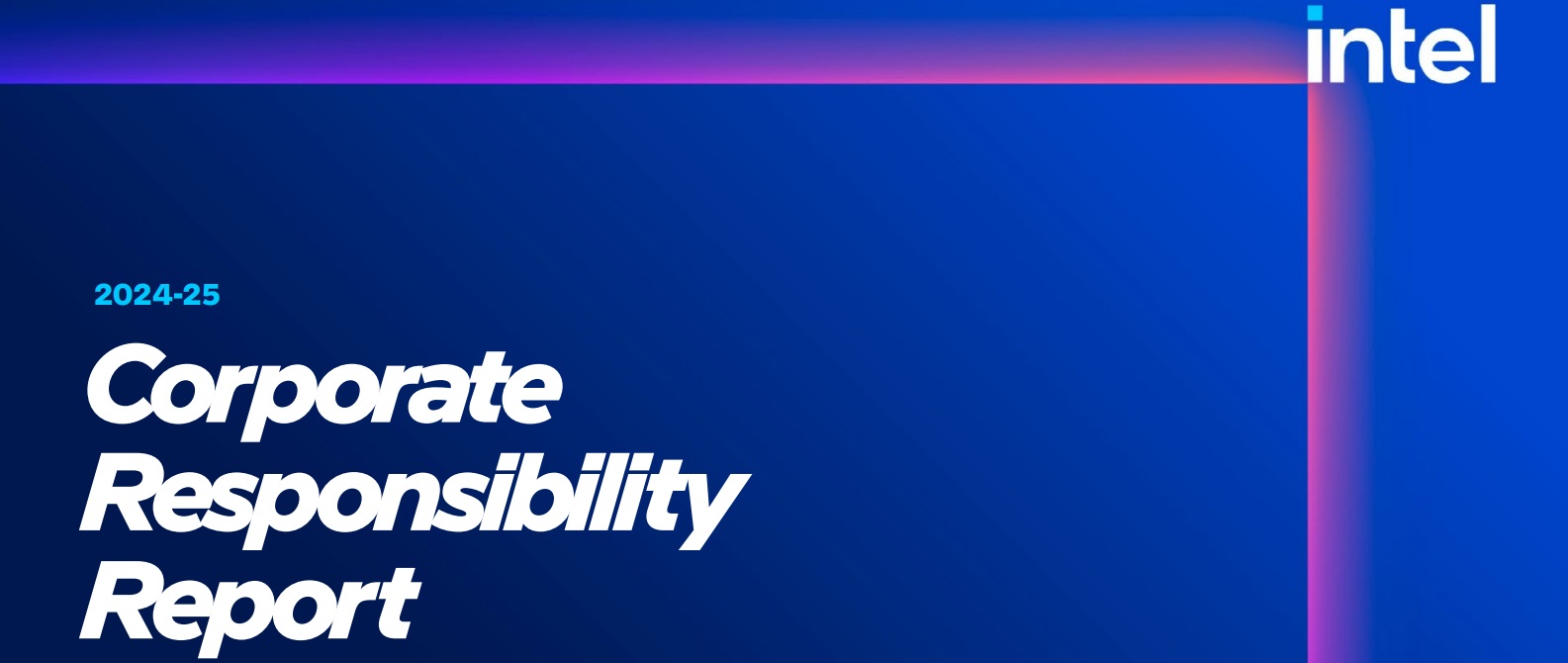
Introduction by Lip-BU Tan:
I’m an engineer at heart. Nothing motivates me more than solving hard problems. Our teams across Intel are driven by this same mindset—inspired by the power of technology to enable new solutions to our customers’ toughest challenges.
I fundamentally believe this will be a catalyst for innovation throughout our company for years to come—and every day brings new opportunities for us to improve.
In our 2024-2025 Corporate Responsibility Report, you will see we have made important progress in many areas. We are driving greater compute performance in our products while improving their power efficiency. Our water conservation and use of renewable energy is supporting a resilient and sustainable manufacturing footprint. And our close collaboration with partners across our value chain is helping customers to achieve their own sustainability goals.
But this work is never done—and we have a lot of hard work ahead as we take actions to reshape our company, strengthen our culture, and empower our engineers to do what they do best.
Underpinning this work is a consistent focus on technology, sustainability, and talent investments aligned with our long-term goals. At the end of the day, our work in these areas drives innovation and growth—because when great people engineer great products to delight our customers, we strengthen our business and help meet the needs of a changing world.
I am looking forward to the work ahead as we build a new Intel. Thank you for your feedback and your partnership
Lip-Bu Tan
Chief Executive Officer
In the 2024-25 Corporate Responsibility Report, Intel outlines a refreshed strategy under new CEO Lip-Bu Tan, emphasizing transformation amid global challenges. Founded on principles of transparency, ethics, and human rights, the report highlights Intel’s integrated approach to corporate responsibility, aligning with frameworks like the UN Sustainable Development Goals and Global Reporting Initiative. With a targeted workforce of 75,000 employees worldwide, Intel’s efforts span people, sustainability, and technology, demonstrating how a tech giant can balance business growth with societal impact.
Central to Intel’s people-focused initiatives is fostering an inclusive, safe culture. The company invests in talent development, aiming to retain top performers through consistent indicators across talent systems. In 2024, Intel’s undesired turnover rate was 5.9%, reflecting ongoing economic pressures but also progress in employee engagement. Programs like Inclusive Leaders delivered 120 workshops to 2,271 participants, promoting dignity and respect, with 91% of employees reporting respectful treatment. Safety remains paramount, with a recordable injury rate of 0.71 per 100 employees, below the industry average. Intel’s global volunteer program, Intel Involved, saw employees contribute over 830,000 hours, amplified by $7.8 million in Foundation matches. Philanthropy totaled $79.5 million, supporting STEM education and humanitarian relief. Respecting human rights, Intel conducted 252 supplier audits, addressing forced labor and returning over $200,000 in fees to workers. Responsible minerals sourcing achieved 99% conformance, expanding to include aluminum and copper.
Sustainability efforts underscore Intel’s environmental stewardship. Achieving 98% renewable electricity globally, Intel reduced Scope 1 and 2 GHG emissions by 24% from 2019, avoiding 84% of cumulative emissions over the decade. The Climate Transition Action Plan targets net-zero Scope 1 and 2 by 2040. Energy conservation saved 2.4 billion kWh since 2020, with $104 million invested yielding $150 million in savings. Water stewardship restored net positive water in the US, India, Costa Rica, and Mexico, conserving 10.5 billion gallons and restoring 2.9 billion through projects like Oregon’s McKenzie River enhancement. Waste management upcycled 66% of manufacturing streams, diverting 74,000 tons from landfills via circular economy practices. Supply chain sustainability engaged 140 suppliers on GHG reductions, with 99% responding to CDP questionnaires. Responsible chemistry addressed PFAS through collaborations like the NSTC’s PRISM program, promoting safer alternatives.
Technology initiatives leverage Intel’s expertise for societal good. Product energy efficiency improved 4.0X for clients and 2.7X/3.0X for servers from 2019 baselines, reducing Scope 3 emissions. Responsible AI evolved with a new “Protect the Environment” principle, operationalizing governance for risks like bias. Intel’s Digital Readiness Programs trained 8 million in AI skills across 29 countries, emphasizing inclusion. The Intel Responsible Technology Initiative funded 465 projects in 42 countries, addressing health, education, and climate via solutions like AI for veterans’ transitions and water monitoring in mining.
Intel’s report reflects resilience amid challenges like economic pressures and geopolitical risks. By integrating responsibility into operations, Intel not only mitigates risks but also drives innovation, as seen in CHIPS Act awards bolstering US manufacturing. Looking ahead, Intel’s ambitions—net-zero emissions, inclusive AI, and resilient supply chains—position it as a leader in sustainable tech. This holistic approach ensures Intel enriches lives while building a stronger future for all stakeholders.
Also Read:
Revolutionizing Chip Packaging: The Impact of Intel’s Embedded Multi-Die Interconnect Bridge (EMIB)
Should the US Government Invest in Intel?
Share this post via:






Comments
There are no comments yet.
You must register or log in to view/post comments.